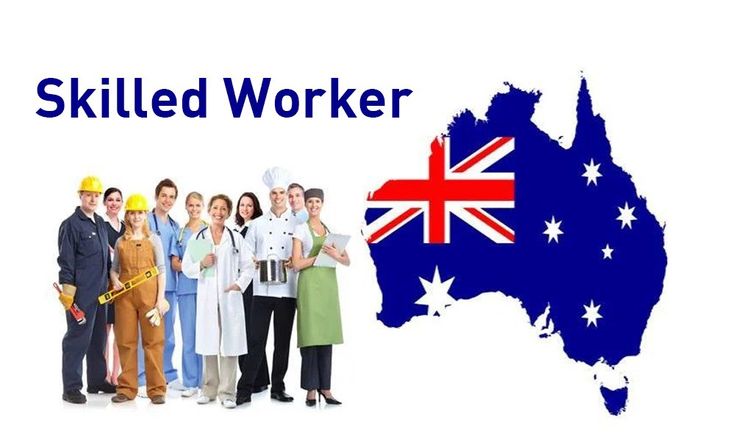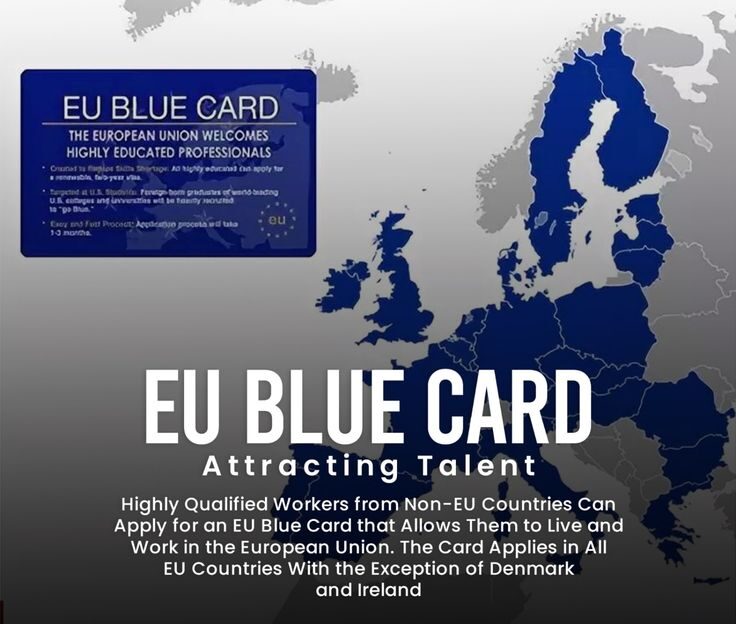Australia’s culinary scene has been evolving rapidly over the past decade, marked by a growing demand for talented chefs and culinary professionals. With a vibrant food culture that blends local produce, international influences, and innovative techniques, the country has emerged as a hotspot for culinary expertise. In tandem with this rise is the increasing availability of visa sponsorship options aimed at attracting skilled chefs from around the globe. This comprehensive article explores the nuances of securing chef positions in Australia, the visa sponsorship process, and the many opportunities available for culinary professionals looking to advance their careers in this dynamic market.
In today’s competitive environment, many industries rely on visa sponsorship to fill roles that require unique expertise. For instance, similar sponsorship opportunities exist in sectors such as Truck Driver Jobs in Australia: Visa Sponsorship & Licensing, where employers actively seek international talent to address skills shortages. This synergy between market demand and immigration policies creates a fertile ground for aspiring chefs who wish to elevate their careers in Australia.
Results
#1. Which continent are you currently living in?
#2. What is your highest completed level of education?
#3. What is your preferred work location?
#4. What is your current employment status?
#5. What is your gender?
#6. What type of work are you most interested in?
The Culinary Landscape in Australia
Australia’s culinary industry is much more than just a collection of restaurants and cafes. It is an ecosystem that integrates high-end dining experiences with innovative approaches to casual and street food, all while maintaining a focus on sustainable practices and local produce. Major cities like Sydney, Melbourne, and Brisbane have become culinary hubs where a diverse range of influences come together to create unique dining experiences. This trend not only opens doors for established chefs but also invites emerging talents from around the world to participate in this gastronomic revolution.
Success in the culinary industry requires more than just technical cooking skills; it demands creativity, management acumen, and a strong understanding of customer preferences. The stringent regulatory environment of Australia means that culinary professionals must not only pass rigorous professional standards but also navigate visa sponsorship processes that are often compared with other specialized fields. In many ways, the pathway for chefs in Australia resonates with that of other skilled professionals such as Early Childhood Educator Jobs in Australia with Visa Sponsorship, where a dual focus on professional competency and immigration compliance is key.
Visa Sponsorship Options for Culinary Professionals
Navigating the immigration landscape to secure a position as a chef in Australia involves understanding the variety of visa sponsorship options that employers offer. The Australian government, in its bid to attract world-class talent, has designed several visa programs aimed at facilitating the entry of skilled workers. For culinary professionals, these visas not only serve as a bridge to employment but also provide a pathway to long-term residency and career progression in the country.
One of the most popular visa options is the Temporary Skill Shortage (TSS) visa, commonly known as the Subclass 482 visa. This visa allows employers to hire overseas workers in occupations where there is a demonstrated shortage of local talent. Culinary professionals are increasingly benefiting from these visa options, which streamline the recruitment process and provide temporary or permanent residency based on the needs of the business. This model is quite similar to initiatives seen in other sectors, such as Australia Subclass 482 (TSS) Visa: Temporary Skill Shortage Guide, which highlights the government’s commitment to attracting skilled labor.
Apart from the TSS visa, culinary professionals might explore other avenues such as employer-sponsored permanent residency. These pathways are typically reserved for candidates with extensive industry experience or those who have made significant contributions to Australia’s culinary innovation. The benefits of such sponsorship extend beyond employment; they also encompass career growth opportunities, access to advanced training programs, and integration into Australia’s social and economic fabric.
Eligibility and Requirements for Chef Positions
Securing a chef position in Australia through visa sponsorship is contingent on meeting a number of eligibility criteria and professional standards. Firstly, culinary professionals must possess recognized qualifications and substantial experience in the industry. A proven track record of innovation and consistent performance in the kitchen is essential, whether this is demonstrated through formal education, apprenticeships, or hands-on experience in high-profile establishments.
The regulatory framework mandates that all applicants provide evidence of their skills through certifications, professional references, and portfolios that showcase their expertise. Employers also assess language proficiency, ensuring that candidates can effectively communicate in an English-speaking environment. These prerequisites are similar to those for other trades and professions; for instance, many successful candidates have comparable requirements as observed in Skilled Trades Apprenticeships in Australia with Visa Pathways, where hands-on experience and formal training are equally valued.
Moreover, prospective applicants must navigate the points-based system that evaluates factors such as age, work experience, and educational background. This system is designed to attract professionals who contribute significantly to the country’s economy and cultural landscape. Chefs with a flair for innovation and a robust background in international cuisines often score high on this index, making them attractive candidates for sponsorship.
Preparing Your Application and Interview Tips
A well-prepared application can be the difference between securing a highly sought-after chef position and facing repeated rejections. This phase requires precision, attention to detail, and a thorough understanding of both the culinary industry and the specifics of visa sponsorship processes. Preparing an effective application involves several key steps:
- Crafting an Impressive CV and Cover Letter:
Highlighting your culinary qualifications, specializations, and achievements is crucial. Ensure that your CV is tailored to the Australian market, emphasizing relevant work experience, training, and certifications. The cover letter should succinctly articulate your passion for culinary arts and your reasons for seeking opportunities in Australia. - Portfolio Preparation:
A comprehensive portfolio that includes photographs of dishes, menus created, awards won, and press mentions can significantly strengthen your application. This visual representation of your skills often plays a vital role in convincing potential employers of your capability. - Interview Preparation:
Familiarize yourself with the typical questions asked during culinary interviews in Australia. Practice articulating your creative process, how you manage kitchen operations under pressure, and your strategies for ensuring consistency and quality. Demonstrating a deep understanding of Australian culinary trends and customer expectations can set you apart. - Understanding Visa Documentation:
In addition to your professional credentials, you must be well-versed in the visa requirements. This includes gathering transcripts, reference letters, and any necessary certifications that validate your culinary expertise.
This application process reflects a structured pathway similar to that of other fields. For example, the approach taken by graduates seeking positions in other countries can be paralleled with Entry-Level Jobs in the UK with Visa Sponsorship for Recent Graduates, where meticulous preparation and clarity of purpose are equally critical.
Inserting the First Set of Tables
At this point in the journey toward a culinary career in Australia, it is beneficial to review related opportunities and compare various options. The following tables have been curated based on a diverse range of topics from trusted resources. Each table is designed to assist you in understanding job opportunities, visa programs, and funding avenues that may complement your career trajectory, regardless of whether your specialization lies in the culinary arts or another sector.
Table 1: Job Opportunities with Visa Sponsorship
| Job Position | Salary Expectations (AUD) |
|---|---|
| Truck Driver Jobs in Australia: Visa Sponsorship & Licensing | 70,000 – 90,000 |
| Early Childhood Educator Jobs in Australia with Visa Sponsorship | 55,000 – 70,000 |
| Entry-Level Jobs in the UK with Visa Sponsorship for Recent Graduates | 45,000 – 60,000 |
| Warehouse Operative Jobs in Germany with Visa Assistance | 40,000 – 55,000 |
| Teaching Jobs in the UAE (Dubai/Abu Dhabi) with Sponsorship Packages | 65,000 – 80,000 |
Note: Salary ranges are indicative and may vary depending on experience, employer, and location.
Table 2: Visa Program Comparison for Culinary Professionals
| Visa Program | Key Highlights |
|---|---|
| Australia Subclass 482 (TSS) Visa: Temporary Skill Shortage Guide | Enables temporary employment with a pathway to permanent residency for in-demand skills. |
| USA Green Card through Employment: EB Categories Explained | Offers a route to permanent residency for qualified professionals. |
| New Zealand Green List: Fast-Track Residency for Skilled Workers | Focuses on accelerating residency for workers in high-demand occupations. |
| Understanding the Blue Card Scheme for Working in the EU | Provides skilled workers with the opportunity to work and live in EU member states. |
| Family Reunification Visas in Germany | Facilitates family reunification for professionals with established careers. |
Table 3: Scholarship and Funding Opportunities for International Professionals
| Scholarship/Funding Program | Details |
|---|---|
| Top 10 Fully Funded Scholarships for International Students Worldwide (2025-2026) | Offers full funding for international studies, covering tuition and living expenses. |
| How to Secure Scholarships in Canada for Masters & PhD Programs | Guides students through the process of obtaining funding for advanced studies. |
| USA University Scholarships for International Undergraduates | Provides opportunities for undergraduate studies in prestigious US institutions. |
| Government Scholarships in Europe | Offers various scholarships backed by European governments for international students. |
| Scholarships in Australia Without IELTS/TOEFL | Provides funding opportunities that waive standardized language testing requirements. |
Benefits of Visa Sponsorship for Chefs in Australia
Visa sponsorship brings a host of benefits to culinary professionals seeking employment in Australia. It not only simplifies the immigration process but also provides a structured pathway for career advancement and integration into the local market. Some of the standout benefits include:
- Career Stability and Growth:
Securing a sponsored position often means that the employer has confidence in your skills, thereby offering a stable work environment. Many employers invest in ongoing professional development, enabling you to advance within your organization. - Access to Cutting-Edge Culinary Trends:
With a diverse culinary community and continuous innovation, chefs have the opportunity to learn new techniques, experiment with fusion cuisines, and incorporate sustainable practices into their work. This exposure not only refines your craft but also enhances your global culinary perspective. - Networking and Mentorship:
Employers who sponsor work visas often foster inclusive environments that value collaboration. As a sponsored employee, you have the chance to network with renowned chefs, industry experts, and business leaders who can provide mentorship and open doors to further opportunities.
The long-term benefits of visa sponsorship are reflected in how industries continuously adapt their recruitment processes. In many respects, the advantages for chefs are akin to those experienced in other sectors, such as Companies Known for Sponsoring Visas in the UK Tech Sector, where long-term career prospects and personal development are well recognized.
Challenges and Considerations in the Application Process
While the pathway to obtaining a chef position in Australia with visa sponsorship is promising, it is not without its challenges. Prospective applicants must navigate a complex regulatory landscape and meet stringent professional criteria. Some of the common challenges include:
- Stringent Documentation Requirements:
From academic qualifications to detailed work histories and culinary portfolios, the documentation process can be overwhelming. It is crucial to ensure that all documents are up to date, accurately certified, and in compliance with Australian immigration standards. - Competitive Environment:
The number of skilled culinary professionals vying for sponsored positions is substantial. This necessitates not only exemplary skills in the kitchen but also strong soft skills such as communication, leadership, and adaptability. Applicants must be ready to demonstrate both technical prowess and the ability to thrive in a multicultural setting. - Adapting to New Cultural Norms:
Living and working in Australia requires an adjustment period, both professionally and personally. Understanding local work ethics, communication styles, and culinary trends is essential for success in a new market.
The hurdles encountered in the sponsorship process parallel those seen in other global markets. For instance, similar challenges are discussed for professionals exploring international opportunities, as seen in Work Opportunities in Germany for English Speakers (Visa Guide), which underscores the need for thorough preparation and cultural adaptability.
Success Stories and Case Studies
Real-life examples of culinary professionals who have successfully navigated the Australian visa sponsorship process offer valuable insights for aspiring chefs. These stories provide a glimpse into the tangible benefits of sponsorship and the personal determination required to overcome bureaucratic hurdles. In one illustrative case, a chef from Southeast Asia secured a chef position at a renowned restaurant in Melbourne through employer sponsorship. This opportunity not only allowed the chef to showcase innovative culinary techniques but also paved the way for future professional endeavors in Australia.
Such success stories are important as they highlight that with the right strategy, determination, and guidance, overcoming visa obstacles is possible. These experiences are reminiscent of experiences in other international sectors, such as Teaching Jobs in the UAE (Dubai/Abu Dhabi) with Sponsorship Packages, where success is largely contingent on preparedness and adaptability.
Future Prospects for Culinary Professionals in Australia
Looking ahead, the prospects for culinary professionals in Australia continue to brighten. The ongoing evolution of the food industry, combined with growing consumer expectations for innovative dining experiences, ensures that the demand for skilled chefs remains strong. As international culinary trends blend with local traditions, chefs in Australia are uniquely positioned to lead this gastronomic evolution.
Technology, sustainability, and health-conscious dining are set to influence the future culinary landscape. Embracing these trends not only helps chefs remain competitive but also encourages them to reinvent their culinary styles. The progression in visa policies and an increasing number of sponsorship packages further underscore Australia’s commitment to securing international culinary talent. This forward-thinking approach mirrors that of other sectors, such as Engineering Roles in Germany with Sponsorship, where future growth is heavily dependent on continuous innovation and global integration.
In addition, government initiatives and private sector investments in the food and hospitality industry signal a robust future. Culinary professionals can expect more opportunities for specialized training, research collaborations, and participation in international culinary festivals and competitions. These initiatives not only enhance professional skills but also contribute to the broader cultural and economic vibrancy of Australia.
Useful Resources and Next Steps
For chefs and culinary professionals interested in exploring opportunities in Australia, staying informed about the latest immigration policies, industry trends, and employment opportunities is crucial. A proactive approach in networking, continuous education, and maintaining an updated professional portfolio is key to navigating the competitive landscape. Here are some actionable steps and resource recommendations:
- Stay Updated:
Regularly check government websites and reputable immigration advisory pages for any changes to visa sponsorship policies. Networking with industry professionals via culinary associations and online forums can also provide insider tips and updates. - Refine Your Culinary Skills:
Engage in continuous learning through advanced culinary courses, workshops, and seminars. Emphasize areas such as sustainability, modern cooking techniques, and fusion cuisine to stand out. - Leverage Professional Networks:
Use platforms like LinkedIn, culinary-specific job portals, and industry events to expand your professional network. Such connections often offer insights into job openings and internal sponsorship opportunities. - Consult Expert Immigration Advisors:
Given the intricacies of Australian immigration policies, consulting a registered migration agent or legal advisor can significantly enhance your application process. - Explore Comparative Opportunities:
While Australia presents tremendous opportunities, it is always beneficial to compare international options. For instance, professionals might review USA Green Card through Employment: EB Categories Explained to gain perspective on how different immigration routes can lead to successful international careers.
By taking these steps, culinary professionals can ensure that they are well-prepared not only to secure a chef position in Australia but also to thrive in an increasingly competitive global market.
Conclusion
Securing a chef position in Australia through visa sponsorship is an exciting yet rigorous journey that blends culinary passion with meticulous adherence to immigration processes. From mastering industry-specific skills and preparing a robust application to understanding the intricacies of sponsorship and navigating regulatory requirements, the path can be challenging—but it is equally rewarding for those who rise to the occasion.
🎓 Must Read
Australian culinary employers are on the lookout for innovative, skilled, and globally experienced chefs, making this a prime time to pursue opportunities in the country. The convergence of a vibrant food culture, strong visa sponsorship frameworks, and a forward-looking approach to culinary innovation makes Australia an ideal destination for culinary professionals from around the world.
By carefully preparing your application, harnessing success stories as motivation, and leveraging practical resources and industry comparisons, you can position yourself as a top candidate. As global culinary standards evolve and Australia continues to attract international talent, the prospects for culinary professionals will only continue to expand.
Aspiring chefs should therefore embrace the challenge and view visa sponsorship not as an obstacle but as an enabler of career growth and international collaboration. With persistence, preparation, and the right guidance, your culinary dreams in Australia are well within reach.









